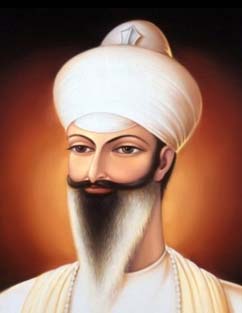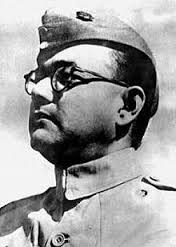Jan 08, 2026
Jan 08, 2026
They demanded full independence for the Indian nation from the British. They sought to oppose foreign rule not by killing foreign rulers but through active protest that remained essentially non-violent. Their main weapon against their colonial masters was to launch a peaceful non-cooperation movement boycotting all government services, British opened educational institutions, British law courts, all foreign manufactured goods. In order to further their movement their followers were instructed to disobey and resist all legal orders that violated their conscience. The British did not take kindly to this demand for freedom. Sometimes things got out of hand and there was untold government repression. On one such occasion there was a massacre. The freedom fighters were tied to the mouths of canons and blown to bits. Many readers would dispute this and state that Mahatma Gandhi’s followers were cane-charged and perhaps sometimes shot, but never blown to bits by canons.
 Readers would be right. But the above narrative is not about Mahatma Gandhi’s struggle. It is about the Kooka Revolt by Namdhari Guru Ram Singh more than fifty years before Gandhi borrowed all his ideas for India’s freedom struggle. Ram Singh went far beyond Gandhi. He set up his own postal system, established diplomatic relations with neighbouring countries such as Nepal, Afganistan and Russia, and even established in 1869 a regiment named the "Kooka Platoon" in Kashmir state! In fact he almost anticipated a South Asian Union! The Guru was imprisoned and his movement was crushed.
Readers would be right. But the above narrative is not about Mahatma Gandhi’s struggle. It is about the Kooka Revolt by Namdhari Guru Ram Singh more than fifty years before Gandhi borrowed all his ideas for India’s freedom struggle. Ram Singh went far beyond Gandhi. He set up his own postal system, established diplomatic relations with neighbouring countries such as Nepal, Afganistan and Russia, and even established in 1869 a regiment named the "Kooka Platoon" in Kashmir state! In fact he almost anticipated a South Asian Union! The Guru was imprisoned and his movement was crushed.
How many historians acknowledge the role of Guru Ram Singh?
The other day I once again saw the movie classic, Richard Attenborough’s Gandhi. With its spectacular star cast including Ben Kingsley, Roshan Seth, Saeed Jaffrey, John Gielgud, Trevor Howard, John Mills, Martin Sheen, Edward Fox and others the movie undoubtedly will create a lasting impression on the public mind about Gandhi. Not surprisingly the narrative is sanitized to show Gandhi in the best possible light. Many events such as the rejection of the Cabinet Mission Plan and the post Independence holocaust are omitted. Although the Noakhali violence and Gandhi’s Calcutta fast are of course prominently featured. But the most glaring omission was no mention at all of Netaji Subhash Chandra Bose. This should not surprise. History after all is the victor’s version of events.
 I personally think that Bose erred by abandoning non violence and quitting the Congress. British administration was too comforting for the majority of Indians to ignite violent revolution. Gandhi understood this. But Bose was far ahead of his contemporaries in his vision of a futuristic great modern Indian nation state. Some years ago I advocated Roman Hindi as a device to unify and globalize the national language. Imagine my surprise to learn subsequently that Bose had advocated this before Indian Independence! Had he stayed on in the Congress I doubt if India would have been partitioned. Despite the valiant efforts of his loyalists memories of Bose are gradually dimming and may eventually disappear. A few days ago on his birth anniversary in Parliament apart from Mr. LK Advani no leader came to pay homage. No Congress Minister attended the function.
I personally think that Bose erred by abandoning non violence and quitting the Congress. British administration was too comforting for the majority of Indians to ignite violent revolution. Gandhi understood this. But Bose was far ahead of his contemporaries in his vision of a futuristic great modern Indian nation state. Some years ago I advocated Roman Hindi as a device to unify and globalize the national language. Imagine my surprise to learn subsequently that Bose had advocated this before Indian Independence! Had he stayed on in the Congress I doubt if India would have been partitioned. Despite the valiant efforts of his loyalists memories of Bose are gradually dimming and may eventually disappear. A few days ago on his birth anniversary in Parliament apart from Mr. LK Advani no leader came to pay homage. No Congress Minister attended the function.
Take the case of Maulana Hasrat Mohani. In the early 1920s he got the fiercely debated proposal of full Independence passed in the General Body meeting of the Congress party. Mahatma Gandhi was strongly opposed to the proposal but remained helpless before the overwhelming demand of youth members present. Mohani was a poet and inspired the public against British Rule with his verses. In the struggle for Indian Independence he was jailed for many years. After Veer Sawarkar he too became a leader to demand 'Complete Independence' in 1921. A fierce secularist he bitterly opposed the Partition and refused to migrate to Pakistan after Independence . He died in 1951. How many historians recall him for advocating Independence in the Congress long before Gandhi?
Beyond politics even the literary world is replete with examples of visionary perceptive writers. George Orwell by authoring 1984, and Aldous Huxley by his Brave New World along with Russian writer Solzhenitsyn are household names for having deconstructed the evils of totalitarian regimes. But long before them there is a chilling futuristic account in the novel by Russian author Yevgeny Zamyatin who published the book, We, in 1921 analyzing with clinical precision how totalitarian rule degenerates into society completely controlled by the State acting as Big Brother through use of technology. The English version of the book was published in New York in 1924. How many people, even in Russia, remember Zamyatin?
Such examples can be multiplied. How might this phenomenon be explained? Because there is created a symbiotic relationship between dissent and the ruling establishment before ideas dismissed previously get accepted, conspiracies are suspected. In fact the simple explanation might be that it is just a matter of timing. An idea however valid is accepted only when its time comes. Some people thrive because of this while others may languish in obscurity. The explanation for differing fortunes may be just the law of Karma.
A wise politician once told me:
“Remember, if you are one step ahead of an event you are seen as a leader. If you are two steps ahead you are a visionary. If you are three steps ahead you are a crackpot!”
Now that the world has entered the Information Revolution should not historians and researchers use new technology to ferret out all the crackpots of history and their non-achievements for the world to better assess the so-called achievements of the historical icons it worships? The pursuit of truth demands nothing less.
28-Jan-2014
More by : Dr. Rajinder Puri

|
Very incisive article Rajinderji. Subhash is a forgotten chapter of history despite his vision of India which was different from Gandhi and he would have taken an uncompromising stand on Partition. Congress as then and as it is now took a hostitle attitude towards Bose because he took the path of violence but was not the British response to freedom struggle equally violent? The party took a onesided view of Bose from Gandhi's time possibly because he could be a potential political threat to Nehru's camp. No wonder the party does not acknowledge his birth anniversary or his contributions. |

|
Rajinder-ji, excellent article. Thanks! |

|
Rajinder Puri ji, I just loved your this article. This has always been my feeling and understanding of whatever I read and did in my 61 years of life, working in a Scientific institution, in social field and in personal life, the one step, two step, three step business. Social happenings, in fact any happening in the world is like an orchestral performance. Less clever are manipulative, unlike more sincere and earnest people. Gandhi was shrewd, archaic in world view. Subhash was a visionary. Gandhi's betrayal of Subhash brought holocaust in the subcontinent and created India Pakistan animosity. How can one brand Gandhi's movement peaceful, when brother kills brother as a result? If Gandhi had not shown undue partiality to Nehru, the Nation would not have gone through the cataclysmic events of partition and holocaust. Tagore warned Gandhi but he was more prone to personal trifling with truth. He was a mediocre man. Imagine, in modern India, Nehruvian socialism has been discarded and middle class Indian is in love with internationalism. I therefore support your idea of scooping up the crackpots and visionaries of Indian freedom. But would the current Indian polity allow? Jinnah can not praised because he created Pakistan. Gujarat's progress can not uttered because there was riot after Godhra happening. Probably, truth are never to be mouthed! It is wiser to fan populism at the expense of people and remain a leader. How can there be prick of conscience, when a legacy is given democratically! |